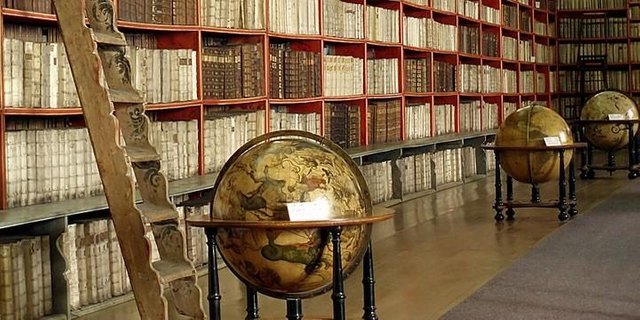The Chronicles Of Science
Hello everyone, today I want to talk about something different, something that kept me thinking. Way back to the beginning, when most of the things we're seeing now are still thoughts in the subconscious mind of men..

Tracing the exact origins of modern science is difficult but can be traced to the prehistoric times when man started making observations about the sun, Moon and the planets. The difficult is due largely to the scant documentary and physical evidence of ancient investigations of nature.
Even the word scientist is relatively recent and was first coined by William Whewell in the 19th century otherwise people investigating nature previously called themselves natural philosophers.
Science as previously described is a body of empirical, theoretical and practical knowledge about the natural world, produced by a global community of researchers making use of scientific method, which emphasize the observation, experimentation, and explanation of real world phenomena.
Given the dual status of science as objective knowledge and as a human construct, good historiography of science draws on the historical methods of both intellectual and social history.

While empirical investigations of the natural world have been described since antiquity (by Aristotle) and scientific methods have been used since the middle ages (by Ibn-al Haytherm and Roger Bacon). The dawn of modern science is gradually traced back to the early modern period, during what is known as the scientific Revolution of the 16th and 17th centuries.
THEORIES AND SOCIOLOGY OF THE HISTORY OF SCIENCE
Much of the study of the history of science has been devoted to answering questions about what science is, how it functions and whether it exhilarate large scale patterns and trends. The sociology of science in particular has focused on the ways in which scientist work, looking closely at the ways in which they "produce" and "construct" scientific knowledge.
Since 1960's, a common trend in science studies (the study of sociology and history of science) has been to emphasize the "human component" of scientific knowledge and to de-emphasize the view that scientific data are self-evident, value-free and context free.

A major subject of concern and controversy in the philosophy of science has been the nature of theory change in science. Karl Popper argued that scientific knowledge is progressive and cumulative; Thomas Kuhu, said that scientific knowledge moves through paradigm shifts and is not necessarily progressive, and Paul Feyerabend, that scientific knowledge is not cumulative or progressive and that there can be no demarcation in terms of method between science and any other form of investigation.
I think we'll stop here for today, next time I'll bring more across to us. Thanks for your time.. God bless
Congratulations @nancyfidel! You received a personal award!
Click here to view your Board
Do not miss the last post from @steemitboard:
Congratulations @nancyfidel! You received a personal award!
You can view your badges on your Steem Board and compare to others on the Steem Ranking
Do not miss the last post from @steemitboard:
Vote for @Steemitboard as a witness to get one more award and increased upvotes!
@therealwolf 's created platform smartsteem scammed my post this morning (mothersday) that was supposed to be for an Abused Childrens Charity. Dude literally stole from abused children that don't have mothers ... on mothersday.
https://steemit.com/steemit/@prometheusrisen/beware-of-smartsteem-scam